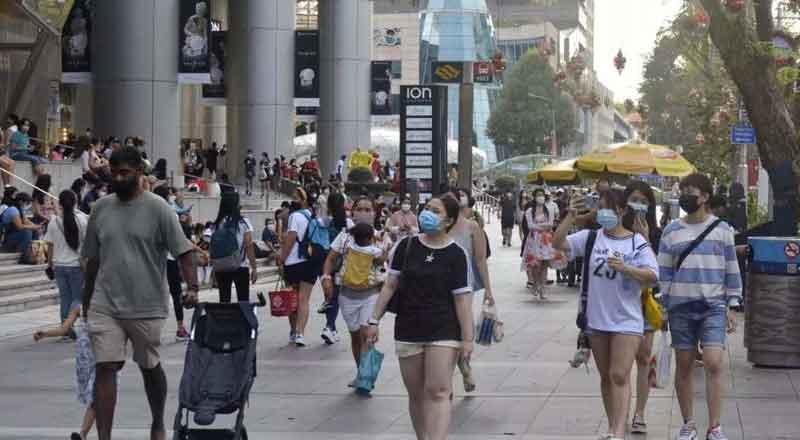Singapore’s Minister for Health Ong Ye Kunga said that COVID-19 cases in the country have ‘potentially peaked’ in the country, but stressed that no additional measures would be required. COVID-19 cases from 10,726 infections in the week of Nov 12-18, to 58,300 in the week of December 10-16.
Singapore’s Minister for Health Ong Ye Kunga on Friday said that COVID-19 cases in the country have ‘potentially peaked’ in the country, but stressed that no additional measures, like wearing a face mask or maintaining social distancing, need to be implemented. The increasing number of coronavirus-related infections have once again raised concerns of a resurgence of the worldwide pandemic.
We might have a slight surge, but I think more or less, we are seeing the peak of this wave,” said Ong to local media during the soft opening of a health campus in northern Singapore’s Woodlands area. He noted that at least 600-700 hospital beds were taken up by COVID-19 patients, which is creating a strain on the medical system.
“We are a 10,000 bed-strong system. To take up 600 or 700 beds, it’s six-seven per cent, which is not small. It’s a significant workload on our healthcare workers and our system. Nevertheless, I think our assessment remains… that we can withstand this without additional safe management measures (SMMs),” he added.
Experts say hospitalisations and the need for intensive care always lag infections, which have been rising for four weeks – from 10,726 infections in the week of Nov 12-18, to 58,300 in the week of December 10-16. However, Ong said that estimated infection numbers have come down in the past few days, signalling that “we have plateaued”.
What do experts say?
Alex Cook, an Associate Professor of the National University of Singapore’s Saw Swee Hock School of Public Health, said, “We have to remember that severe cases will typically peak after the mild cases peak, so even if the peak cases have already come, we may need to wait a while before the impact on the healthcare system starts to get better.”
He further said that just because the cases have come down does not necessarily imply that the wave of COVID-19 infections has peaked or is over. This comes after Ong encouraged Singaporeans to exercise personal responsibility by wearing a mask when sick and staying at home and continuing to be up to date with vaccinations.
Regulations in Singapore
Ong stressed that it is particularly important for seniors or those with underlying illnesses to receive their vaccination once a year as they are most vulnerable to COVID-19. He said that the Ministry of Health will work to improve the availability of vaccines by increasing the number of general practitioners (GPs) that administer COVID-19 vaccines and having it be part of the Healthier SG programme.
The seven-day moving average estimated daily number of COVID-19 cases in Singapore has been dropping in recent days, decreasing from 7,730 on December 17 to 6,820 the following day and then 6,530 cases on December 19. Ong said that many people have asked him to reinstate the mandate to wear masks, especially on public transport.
For this wave, “we can withstand this without additional safe-distancing measures”, the Singaporean health minister said, but appealed to everyone to indeed wear a mask and stay at home if they are sick. ““If you have to come into contact with someone, then wear a mask,” said Ong.
Quoting the MoH, The Straits Times reported that the concerned ministry has announced the opening of a second COVID-19 treatment facility at Singapore Expo Hall 10 this weekend to increase the number of beds for COVID-19 patients. Their doctors will decide if they should be admitted.
COVID-19 cases in Malaysia
A similar case has been witnessed in Malaysia which recorded 20,696 COVID-19 cases between December 10 and 16. However, Health Minister Dzulkefly Ahmad announced on Monday refuted the speculations of lockdown which is often dubbed as Movement Control Order (MCO).
“At present, the situation is not causing a burden on our health facilities. Do not be alarmed, but at the same time, take precautionary measures,” The Straits Times quoted the minister as saying. “Maintain your distance from one another, practise good hygiene, wear masks in indoor or crowded spaces and get booster shots, especially those in high-risk categories,” he added.
(with inputs from agencies)





